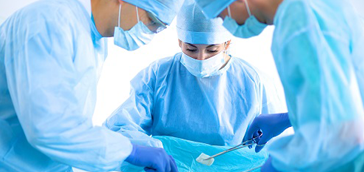
High Quality Melt Blown & Air Filter Supplier!




At present, medical masks are mainly divided into three types: "medical protective masks" with the highest protection level, "medical surgical masks" commonly used in operating environments such as operating rooms, and "disposable medical masks" of ordinary levels.
1. Medical protective mask (N95)
"Medical protective mask" has a good fit with the wearer's face, can filter particles in the air, block pollutants such as droplets, blood, body fluids, secretions, etc., and can filter non-oily particles more than 95% (The meaning of this sentence is that the mask can reach N95 level.). It is a personal protective device commonly used to combat airborne diseases. Common medical protective mask shapes include arch and butterfly.
2. Medical surgical masks
"Medical surgical masks" are medical masks commonly used in operating rooms and other environments where there is a risk of bodily fluids or blood splashes. "Medical surgical masks" can block blood and body fluids from passing through the masks to contaminate the wearer. At the same time, the "medical surgical mask" has a filtering efficiency of more than 70% for bacteria, but has a limited filtering efficiency for particles, and most of them have a rectangular design, which is not as tight as the medical protective mask. Common medical surgical masks include strap type and ear hook type.
3. Ordinary medical masks (medical care masks)
Ordinary medical masks have many names. Medical masks without the words "protection" and "surgical" are ordinary medical masks. This level of masks does not require barrier effect on blood, and there is no requirement for tightness. Therefore, this mask is only used for wearing in general medical environment. Most common medical masks are ear-hook type, and their appearance is similar to ear-hung surgical masks.
In addition to good filter materials, protective masks should also have good shape design and nose clip design. The better the mask fits the wearer's face, the better the protective effect. This prevents contaminants from entering the nose and mouth from the edges of the mask, especially the gaps on the sides of the nose. Therefore, when wearing a mask, the nose clip at the bridge of the nose should be compressed tightly, and the length of the mask belt should be adjusted to make the mask fit the face as much as possible.
When wearing a medical mask, you should choose the appropriate level according to the type of contamination and the risk. The choice of masks should not be too high or too low. Although the medical protective mask with high protection level has better protection effect, due to the high filter material level, good adhesion and higher breathing resistance, long-term wearing will increase the burden of breathing, causing difficulty in breathing and other discomforts. Medical surgical masks and medical protective masks can block the pollution caused by blood and body fluid splashes, but if you really need to block the pollution of airborne particles and pathogenic microorganisms, please choose to wear medical protective masks.